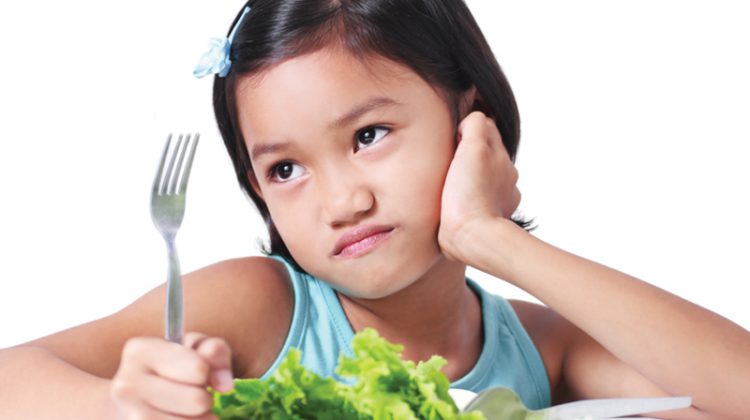By: Dr. Brian Gannon
Q: My child is a poor eater. She eats about one good meal a week. People keep telling me she will eat when she is hungry. Is this ok?
A: The answer depends to some degree on the age of the child. Babies get most of their calories from milk during the first year, generally taking about 25-30 ounces a day, and other food is just extra. But after the first birthday, children gain weight much more slowly. They usually cut their milk intake roughly in half when they switch to whole milk, to about 15-20 ounces a day. After the first year, children should get more than half their calories from other foods, and less than half from milk. The most important issue for the child, however, is not variety, but rather control. Children between about 15 months and 5 years old crave control. And eating is one of only three things children can control completely, the other two being sleep and toileting. Everything else parents can “force” the child to do, but nobody can make a child fall asleep, go in the potty, or actually swallow the food.
So, once parents realize the issue is not nutrition, but rather control, then it helps to reframe the problem. Let the child have control in a restrained but appropriate way, and she is less likely to demand control inappropriately. Make sure that at least one meal every day includes foods the child usually eats. Let her help you prepare or design the meals (for example, “We are having chicken tonight. Would you like green beans or carrots with that?”) And when introducing foods, do it gradually, maybe one new food a week. And only expect a few bites, maybe even put the new food on the parents’ plates and not the child’s. That makes the new item more alluring. Many children who appear to eat poorly are often snacking all day, so they are simply not hungry at meal times. One way to manage this is to tell the child (not in the middle of an argument over food during a meal) that if she chooses not to eat what you offer at the meal, then there will be no snacks until the next scheduled meal, even if that means an overnight fast for the child. If you stick to this plan, the child will only refuse to eat for a few nights, usually not more than 3 or 4.
And remember, many children are so busy snacking all day and so exhausted from their daily routine, that by 6:30 or 7 pm, they are just not hungry, no matter what you offer. So they may not be trying to be difficult, but simply have already met their caloric needs from snacking at daycare or preschool. If you try all these strategies and your child still does not eat, please consult your child’s doctor. It may be helpful to offer a chewable vitamin every day to take the place of the variety she is not getting. But she also needs a weight check, detailed dietary history, and exam, to be sure she is not having medical problems that either decrease her appetite, or lead to problems with certain foods.
In the teenager, eating only once a week would be a sign of a serious eating disorder, requiring evaluation by a mental health professional or eating disorders clinic, particularly if the child is very thin, losing weight, or not having a regular period. Some of these girls need to be in the hospital for feeding therapy and counseling.
Q: My child’s doctor seems to discourage me from giving water to my child. I am both nursing and giving solid food, and do not want to introduce whole milk until after he is a year old. Is water OK to give?
A: Water is great, if the child is taking adequate calories from other sources. Most babies and toddlers only need about 2-4 ounces of water a day. They need calorie-dense feedings, so if they are to be fed something other than milk, we prefer food and drink with some calories, like regular foods and juices or milk products. Water is fine for children who are older and better able to self-regulate. But the younger child (less than a year) has less control over his intake, only taking what the parent chooses to offer. So we prefer that parents offer items that have more calories or other nutritional value, rather than large amounts of water.

